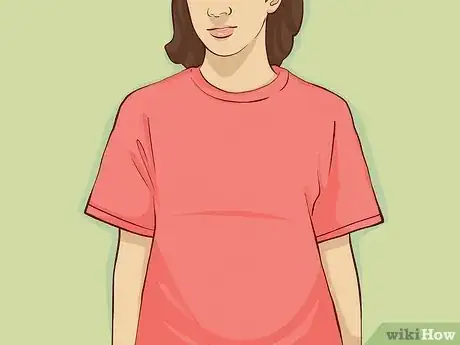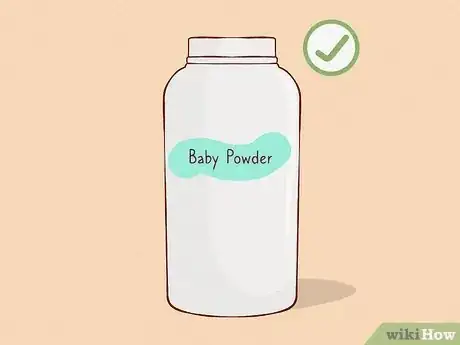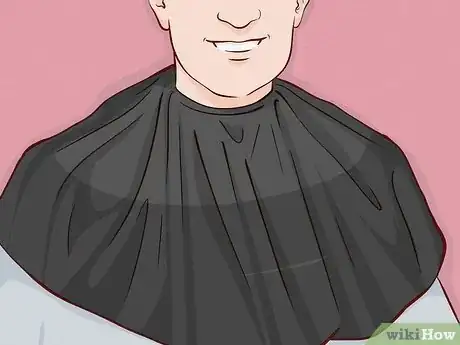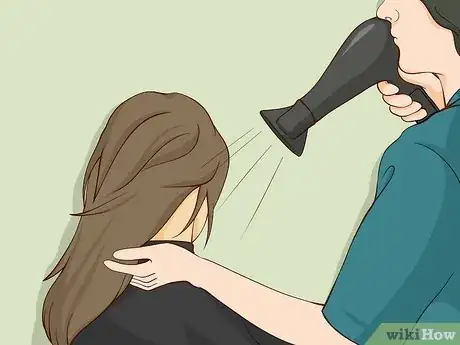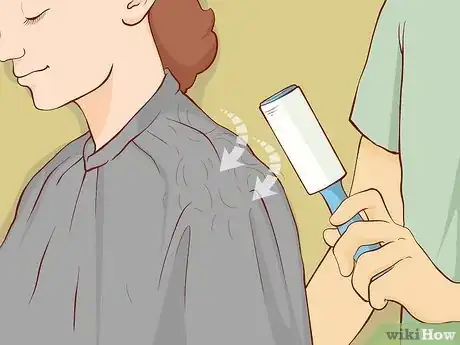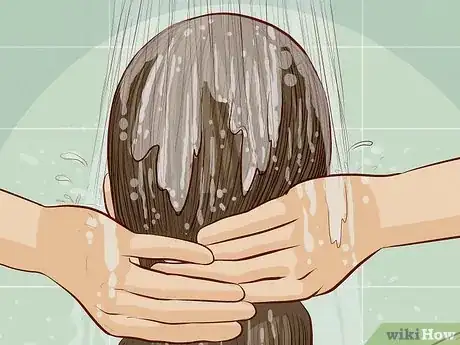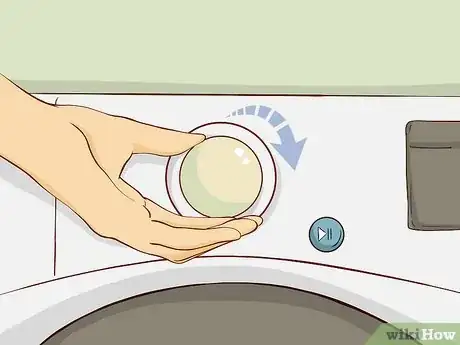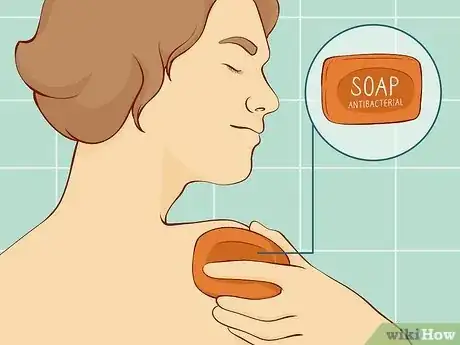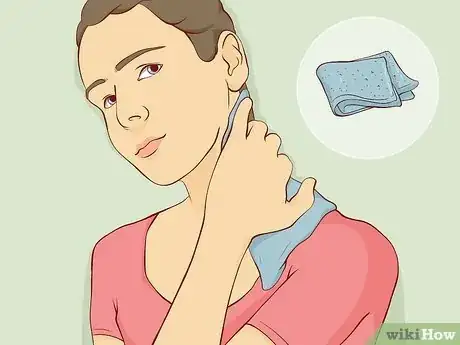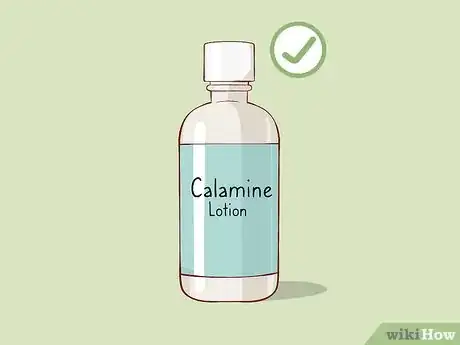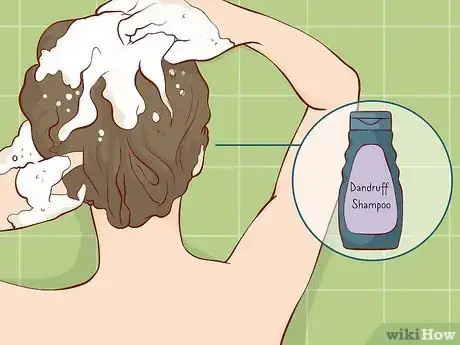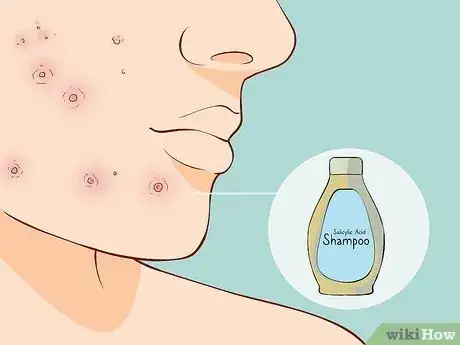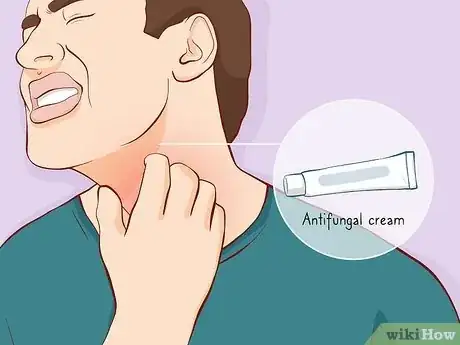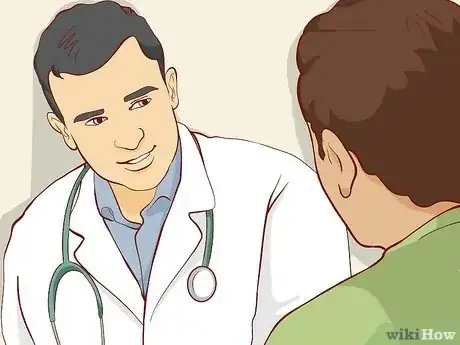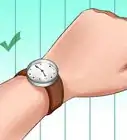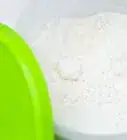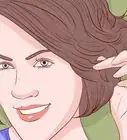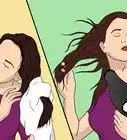This article was medically reviewed by Sarah Gehrke, RN, MS and by wikiHow staff writer, Hannah Madden. Sarah Gehrke is a Registered Nurse and Licensed Massage Therapist in Texas. Sarah has over 10 years of experience teaching and practicing phlebotomy and intravenous (IV) therapy using physical, psychological, and emotional support. She received her Massage Therapist License from the Amarillo Massage Therapy Institute in 2008 and a M.S. in Nursing from the University of Phoenix in 2013.
There are 9 references cited in this article, which can be found at the bottom of the page.
This article has been viewed 93,811 times.
Getting a fresh new haircut might improve your look, but dealing with itchiness and irritation afterwards isn’t fun. Itchiness might be caused by small hairs stuck to your clothes or skin, but if that itchiness doesn’t go away, it might also be caused by a rash, a fungus, or even acne. In this article, we’ll tell you exactly how to prevent itchiness due to your haircut, as well as how you can treat it afterwards (no matter what the cause is).
Steps
Wear a shirt without a collar.
-
Avoid collars, since they tend to trap small hairs. When you’re picking out a shirt to wear for your haircut, stick to a T-shirt or a crew neck that doesn’t have a collar. Not only will this make it easier for your stylist to cut your hair, but it won’t trap as many small hairs inside of your clothing.[1] X Research source
- If you do happen to be wearing a shirt with a collar, turn the collar inside of your shirt before your haircut. That way, it will repel hairs rather than catching them.
Sprinkle baby powder on your neck beforehand.
-
Baby powder dries out your skin so hairs don’t stick to it. Before you leave for your haircut, sprinkle a thin layer of baby powder on the back of your neck. The dry powder will help repel hairs to keep you itch-free.[2] X Research source
- Try to avoid putting on lotion or moisturizer right before a haircut. Lotions make your skin sticky, which can make irritating hairs even more likely to stick to your skin.
Wear a barber’s cape over your clothing.
-
Barber’s capes are slippery, meaning hair slides right off. If your barber or stylist doesn’t offer one, be sure to ask before they start cutting your hair. Your clothing and part of your neck will be protected from the small, itchy hairs that tend to accumulate during a cut.
- You can also ask your stylist or barber for a neck towel for extra protection.
Ask for your neck to be blow-dried after your haircut.
-
A quick blow dry will get rid of pesky small hairs. Once your stylist is done cutting, ask them if they can quickly blow dry the back of your neck and head. That way, you can leave the shop feeling a little less itchy than you normally would.[3] X Research source
- Some stylists might do this automatically, but if yours doesn’t, they shouldn’t mind if you ask.
Use a lint roller on your clothing.
-
Lint rollers quickly pick up small, irritating hairs. If you can’t go home and change quite yet, take a lint roller with you to your haircut. Use it on your shirt, focusing on the areas closest to your neck and chest.[4] X Research source
Rinse your skin once you get home.
-
Take a quick shower to wash off any small hairs. Try to head home as soon as possible after a haircut. Once you’re home, head into the shower and rinse your neck, chest, and the back of your head to feel refreshed.[5] X Research source
- If your stylist already washed your hair, you don’t need to wash it a second time. Running water will be enough to wash off any itchy hairs.
Wash your clothing after your haircut.
Wash your skin with antibacterial soap.
-
Get rid of dirt and bacteria that could be causing itchiness. If you’ve rinsed your skin and you’re still feeling itchy, you may have folliculitis (also called barber’s rash). Wash your neck and the back of your head with an antibacterial soap to wash away germs and remove any infection.[6] X Trustworthy Source Cleveland Clinic Educational website from one of the world's leading hospitals Go to source
- Folliculitis is a red, bumpy, itchy rash that usually happens right after a haircut. It’s caused by irritation or bacteria from the razor or clippers.
Apply a warm compress to soothe itchy, bumpy skin.
-
Use a warm washcloth to reduce inflammation or irritation. Grab a washcloth and run it under warm water, then squeeze the excess out. Hold the washcloth against your irritated skin to open up your pores and calm inflammation.[7] X Trustworthy Source Mayo Clinic Educational website from one of the world's leading hospitals Go to source
- Be sure to wash your washcloth every time you use it, especially if you’re dealing with barber’s rash or barber’s itch. Washing helps prevent the spread of germs and fungus so you can avoid getting itchy in other places.
Use a soothing lotion.
-
Anti-itch lotion helps soothe inflammation and irritation. If your neck or the back of your head is feeling itchy, buy some anti-itch lotion. Spread a thin layer over your skin and let it soak in to feel almost instantaneous relief.[8] X Trustworthy Source Mayo Clinic Educational website from one of the world's leading hospitals Go to source
- Calamine lotion is a great choice, especially if you have sensitive skin.
- Aloe vera gel is also a good option, especially if you have razor burn.
Try a dandruff shampoo for eczema.
-
Eczema is sometimes exacerbated by getting a haircut. If you have a history of eczema, you may be experiencing burning, itchiness, or a rash after a haircut. Try washing your hair with a dandruff shampoo to soothe your skin and get rid of the irritation.[9] X Research source
- Eczema can range in severity. If you have eczema, talk to your doctor about your treatment options.
Use salicylic acid shampoo for acne.
-
Red, pus-filled bumps may be acne caused by clogged pores from shaving. If you’re prone to acne or have oily skin, try using a shampoo that contains salicylic acid. This ingredient will help dry out the pimples and help them heal faster to reduce itchiness and irritation.[10] X Trustworthy Source MedlinePlus Collection of medical information sourced from the US National Library of Medicine Go to source
Treat barber’s itch with a prescription antifungal.
-
Barber’s itch, or tinea barbae, is caused by a fungus. Usually, this will happen along your beard or neck area if you got a shave along with your haircut. You might notice itchy red bumps that swell or develop pus over a couple of days. If that’s the case, make an appointment with your doctor to get a prescription antifungal cream.[11] X Trustworthy Source DermNet NZ Online clinical resource website written and run by dermatologists providing evidence-based information about dermatology and skin health Go to source
- Barber’s itch is often caused by fungus trapped within your barber’s shears or razors.
Talk to your doctor if home remedies don’t work.
-
Some skin issues need to be treated by a doctor. If you’ve tried home remedies but your skin still feels bumpy or itchy, make an appointment with a dermatologist. They can tell you what’s going on with your skin and prescribe you medicine to treat it.[12] X Trustworthy Source Cleveland Clinic Educational website from one of the world's leading hospitals Go to source
- Folliculitis and fungus often go away on their own within a few days or weeks. However, your doctor may prescribe you a prescription cream to help clear up your skin condition.
You Might Also Like
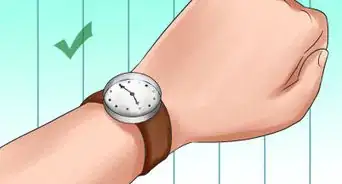
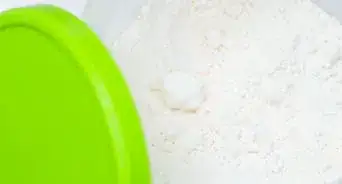
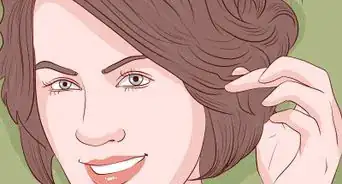
- Chapters
- descriptions off, selected
- captions settings, opens captions settings dialog
- captions off, selected
This is a modal window.
Beginning of dialog window. Escape will cancel and close the window.
End of dialog window.
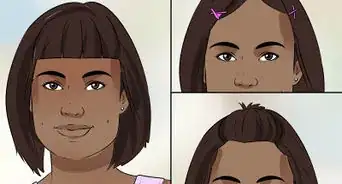
- Chapters
- descriptions off, selected
- captions settings, opens captions settings dialog
- captions off, selected
This is a modal window.
Beginning of dialog window. Escape will cancel and close the window.
End of dialog window.
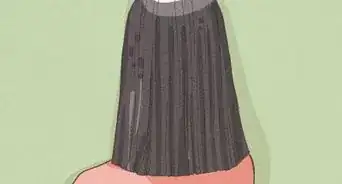 Tips for Trimming Long Hair Evenly (Your Own or Someone Else’s)
Tips for Trimming Long Hair Evenly (Your Own or Someone Else’s)
-Step-18-Version-2.webp)
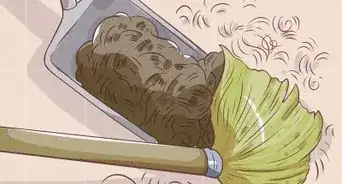 Hairstylist-Approved Guide to Cutting Men’s Hair at Home
Hairstylist-Approved Guide to Cutting Men’s Hair at Home
- Chapters
- descriptions off, selected
- captions settings, opens captions settings dialog
- captions off, selected
This is a modal window.
Beginning of dialog window. Escape will cancel and close the window.
End of dialog window.
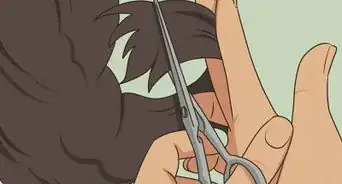 How to Do a Layered Curly Cut at Home
How to Do a Layered Curly Cut at Home
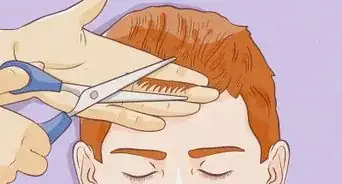
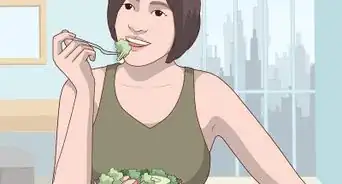
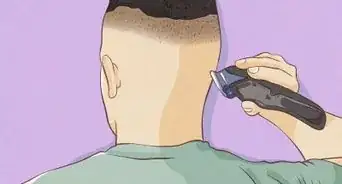 How to Get a Fade that Complements Your Style, Hair Type & More
How to Get a Fade that Complements Your Style, Hair Type & More
References
- ↑ https://sparklingpenny.com/how-to-get-hair-out-of-clothes-after-haircut/
- ↑ http://parenthacks.com/2008/07/baby-powder-or.html
- ↑ https://sparklingpenny.com/how-to-get-hair-out-of-clothes-after-haircut/
- ↑ https://www.tjohearn.com/2021/01/31/how-to-remove-small-hairs-after-a-haircut/
- ↑ https://pathways.org/5-tips-for-sensory-friendly-haircuts/
- ↑ https://my.clevelandclinic.org/health/diseases/17692-folliculitis
- ↑ https://www.mayoclinic.org/diseases-conditions/folliculitis/diagnosis-treatment/drc-20361662
- ↑ https://www.mayoclinic.org/diseases-conditions/folliculitis/diagnosis-treatment/drc-20361662
- ↑ https://eczema.org/information-and-advice/types-of-eczema/scalp-eczema/
About This Article

